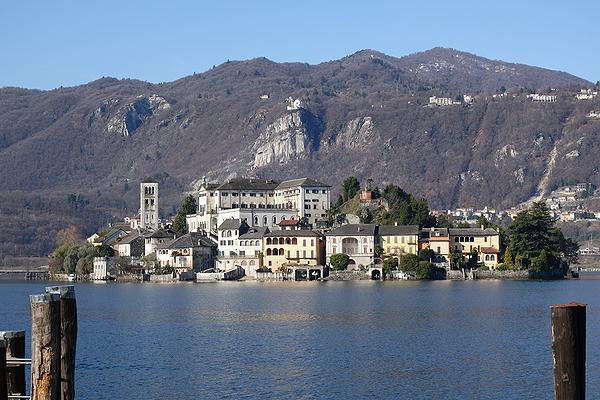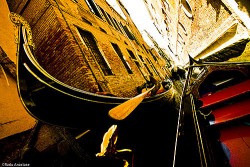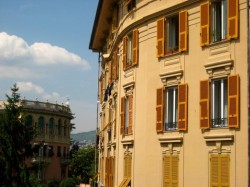ITALY CHRONICLES
Latest Posts

New! Italy Photo Contests – Show Off Your Photos of Italy
If you, like me, you think Italy is extremely photogenic, you might be interested to hear that Italy Chronicles is to run photo contests. The
Italian Politics – Still a Mess
Here’s a roundup stroke overview of what’s going on in the decidedly odd world of Italian politics. Broadly, there are three political factions in Italy,
Wild Boar Hunting in Italy
Ever thought about wild boar hunting in Italy? Maybe not but perhaps you might like to. Italy has a bit of a problem with wild
Berlusconi Heart
On Thursday in Italy headlines were dominated by the news that Silvio Berlusconi, a former and controversial prime minister, required an urgent heart operation and had
Money People – The World’s Biggest Problem
What’s that old saying? Ah yes, “money is the root of all evil”. From what is happening in Italy and elsewhere around the world, there
Italian Politics – Still a Mess
Here’s a roundup stroke overview of what’s going on in
Wild Boar Hunting in Italy
Ever thought about wild boar hunting in Italy? Maybe not
Berlusconi Heart
On Thursday in Italy headlines were dominated by the news
Money People – The World’s Biggest Problem
What’s that old saying? Ah yes, “money is the root
Italy

Bomarzo – Where to See Monsters in Italy
There are lots of places to visit in Italy, but Italian region of Lazio is often overlooked simply because everyone heads to the capital, otherwise

Experience Italy with Italia Sweet Italia
Italia Sweet Italia is a tour operator based in the green and tranquil Italian region of Abruzzo. The holidays Italia Sweet Italia offers are short
Cv’s, Resumes: mug shot or not, that is the question
Many of my students at the business school where ply my language teaching trade are going through the traumatic ‘looking for an internship’ phase at
Exploring Italy’s Rich History: A Concise Overview
Italy’s rich history spans thousands of years and has had a profound influence on the world in various domains. From ancient civilizations to cultural golden

Italian Rogue of the Week – Mauro Floriani
Mauro Floriani, the husband of Alessandra Mussolini, has admitted to multiple encounters with schoolgirl prostitutes in Rome. Alessandra Mussolini is an extreme right ring Italian
Earthquake in Milan Today
For information on the earthquake in Italy on October 26th and 30th, 2016, please see this article: Earthquake Hits Macerata Area of Italy ——————————- For information

Is Italy Committing Economic Suicide?
The title of this post may sound a little extreme

The Tourist – Angelina Jolie and Johnny Depp, Filmed in Venice
Coming soon to a cinema near you, The Tourist, a film staring Hollywood legends Jolie and Depp, which has Venice as its backdrop. From the trailer, The Tourist looks like a fast moving romp around Venice, with guns, gondolas and more.
Properties

How to Find Property for Rent in Italy
Maybe you are coming to Italy to work or study here for a while, in which case, you’ll need somewhere to live. If that’s the
House For Sale near Milan
Gaetano Salvo, friend and Blog from Italy researcher wants to sell his house. For those who might be interested, or may know of someone or

The Admirable Admiral’s Villa in Taormina
If you know your history pretty well, you may be aware that one of England’s most celebrated Admirals possessed a rather charming villa in the scenic Sicilian town of Taormina.

How to Find Property for Rent in Italy
Maybe you are coming to Italy to work or study here for a while, in which case, you’ll need somewhere to live. If that’s the
House For Sale near Milan
Gaetano Salvo, friend and Blog from Italy researcher wants to sell his house. For those who might be interested, or may know of someone or
Places to stay in Italy
Chaplin Bed and Breakfast Rome
Perfectly located in a safe and quiet but extremely central Rome neighborhood, the Chaplin Bed and Breakfast Rome is the ideal base for your Roman holiday.
Casa Villatalla B&B, Liguria
By far the most important members of the Casa Villatalla household are Nellie (an elderly but loveable chocolate Labrador), Bonnie, a fluffy and rather scatty American Spaniel, and Pickle, aneccentric cat who walks like John Wayne.
Villa Miller Bed and Breakfast, Puglia, Italy
Located well off the main road in the depths of the Puglia countryside, Villa Miller the only sounds which disturb guests are those of the crickets and the ringing of the bells worn by the areas cow and sheep population.
Chaplin Bed and Breakfast Rome
Perfectly located in a safe and quiet but extremely central Rome neighborhood, the Chaplin Bed and Breakfast Rome is the ideal base for your Roman holiday.
Casa Villatalla B&B, Liguria
By far the most important members of the Casa Villatalla household are Nellie (an elderly but loveable chocolate Labrador), Bonnie, a fluffy and rather scatty American Spaniel, and Pickle, aneccentric cat who walks like John Wayne.

